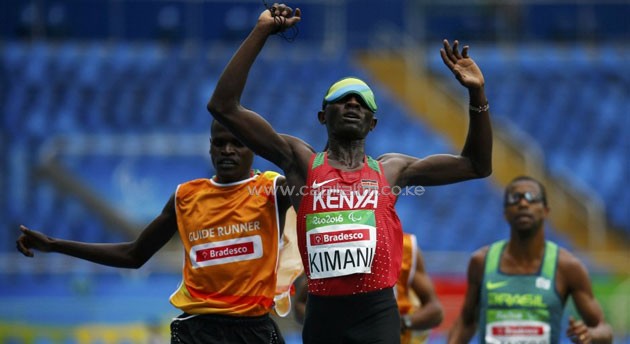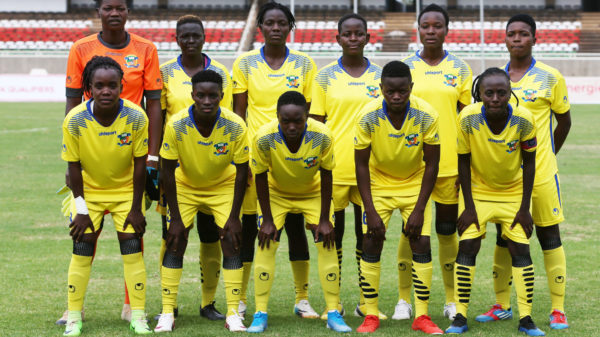
All KPL and National Super League (NSL) clubs are required to comply with the FIFA/CAF club licensing rules and of all the 36, only three have been cleared, one provisionally issued with a certificate and 11 submitted documents.PHOTO/Timothy Olobulu
NAIROBI, Kenya, Dec 8- Sofapaka might have miraculously evaded the axe of relegation on the pitch, but they might find themselves fighting the same battle in a different field as they are one of the Kenyan Premier League clubs yet to hand in club licensing documents to the Football Kenya Federation (FKF).
Other clubs who have not submitted their documents include Western Stima, Mathare United, Muhoroni Youth, Bandari FC and the relegated duo of City Stars and Ushuru FC.
Nick Mwendwa, the FKF president says that the federation will observe directives from CAF that only clubs handed certificates will be allowed to play tier one and two football.
“There is no extension because there will be no other 2016 after December 31. If you don’t comply, you shall not play in the KPL. If you are in the KPL and you are not issued with a certificate, then you shall be relegated. You will apply for the certificate at the NSL and again, if you don’t comply, you will be relegated to Division one,” Mwendwa offered.
All KPL and National Super League (NSL) clubs are required to comply with the FIFA/CAF club licensing rules and of all the 36, only three have been cleared, one provisionally issued with a certificate and 11 submitted documents.
CAF Champions League and Confederations Cup bound Tusker FC and Ulinzi Stars as well as second tier side Wazito FC are the only three clubs to have been certified while Kakamega Homeboyz have a provisional clearance.
The deadline set by CAF for compliance is December 31, but all clubs must have submitted their documents by December 16, to allow for a 14-day appeal period for clubs whose documents will have been rejected by the FKF club licensing committee.
“This is a process that has been going on for two years. It is not our process, but a FIFA and CAF project. I think this will bring a huge change to football because it will ensure security for our clubs in terms of development. Maybe we can’t see the fruits immediately, but in 2019 it will have taken full effect,” Mwendwa stressed.

The only other clubs to have submitted documents include the two giants AFC Leopards and Gor Mahia, Chemelil Sugar, Thika United and Sony Sugar. From the NSL, Palos FC, Kariobangi Sharks, KCB, Nakumatt and Zoo Kericho have applied.PHOTO/Timothy Olobulu
The only other clubs to have submitted documents include the two giants AFC Leopards and Gor Mahia, Chemelil Sugar, Thika United and Sony Sugar. From the NSL, Palos FC, Kariobangi Sharks, KCB, Nakumatt and Zoo Kericho have applied.
Only the clubs who will have had their certificates issued by December 31 will be allowed to play.
“Even if 10 clubs will have been certified, they are the ones who will play the League. These are things that we passed in our AGM and entrenched in our statutes and we cannot go against them. Clubs have had a long time since April 2 when the first workshop was conducted and there should be no excuse,” Mwendwa added.
Among the requirements for the CAF club license include youth structures, infrastructure, administration, coaching, legal and financial.
Clubs must have approved youth teams of the age range of 10-14 and 15-21 complete with infrastructure, qualified personnel and a well laid out financial structure. The youth education programme must further show the club’s commitment to support mandatory and complementary school education for young players.
Under stadia, clubs must prove ownership or lease of a permanent home ground certified under local law. Each stadium must have a control room which ensures an overall view of the inside of the stadium for security purposes.
The stadia must also have proper floodlights, first aid and doping control rooms, covered seat areas, sanitary facilities, media facilities and a set area for people with disability.
Under administration, clubs are required to have a fully functional secretariat complete with a club Chief Executive, finance officer, medical officer, media officer and a head of youth development.
A sticky area that has caught in its web many clubs is the financial section which requires all clubs to provide audited financial statements, ownership structure and contracts of existing sponsorship agreements.























































